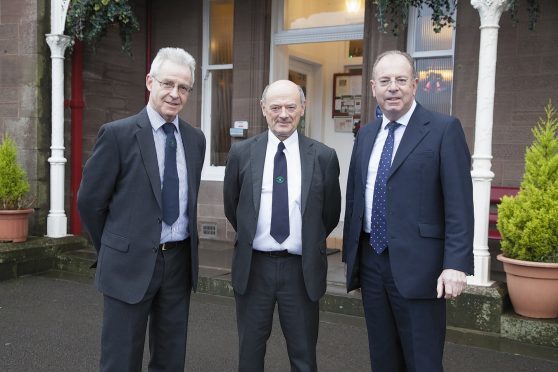Scotland’s largest machinery ring has blamed ongoing challenges in the industry for a drop in profits.
The latest accounts for Ringlink for the year ended July 31, reveal an 88% drop in pre-tax profits to £4,881, from £40,660 previously.
Turnover at the organisation, which has just over 2,800 members, was also down by £59,164 to £1.160million.
Ringlink Services, which focuses on providing labour and training, reported a £307,705 increase in turnover to £4.865million. Pre-tax profits were down to £120,394, from £158,873 previously.
Speaking at the ring’s annual meeting in Edzell this week, chairman Andrew Moir, who farms at Mains of Thornton, near Laurencekirk, said: “As a member-driven organisation our fortunes are interlinked and with commodity prices at a low ebb this has an immediate impact on trading results.”
He said the organisation would be reviewing its annual membership fee of £100, which has remained un-changed for the past 22 years, to enable the ring to “continue to give a very high level of service”.
Managing director Graham Bruce said both the ring and its service company had experienced increased demand for labour during the year. The average number of workers deployed daily was 334 and in November this increased to more than 500.
“The growth in demand for labour is very much a reflection of the industry’s increasing requirement for temporary labour to meet the various peaks and troughs and keep costs down,” added Mr Bruce.
He said members were benefiting from various services at the ring including the sale of electricity, fertiliser and fuel, and a new fuel card scheme would soon be rolled out enabling members to fill up their vehicles at selected garages and be billed through Ringlink on a weekly or monthly basis.
Ringlink’s accountant Ian Williams, who is chairman at Campbell Dallas, gave an overview of the potential impact of Brexit and said the farming industry needed to lobby politicians to ensure they understood the sector’s importance to the Scottish economy.
The potential impact of export tariffs for the lamb sector, for example, were huge and MSPs needed to be reminded of this when negotiating trade deals post-Brexit, added Mr Williams.
